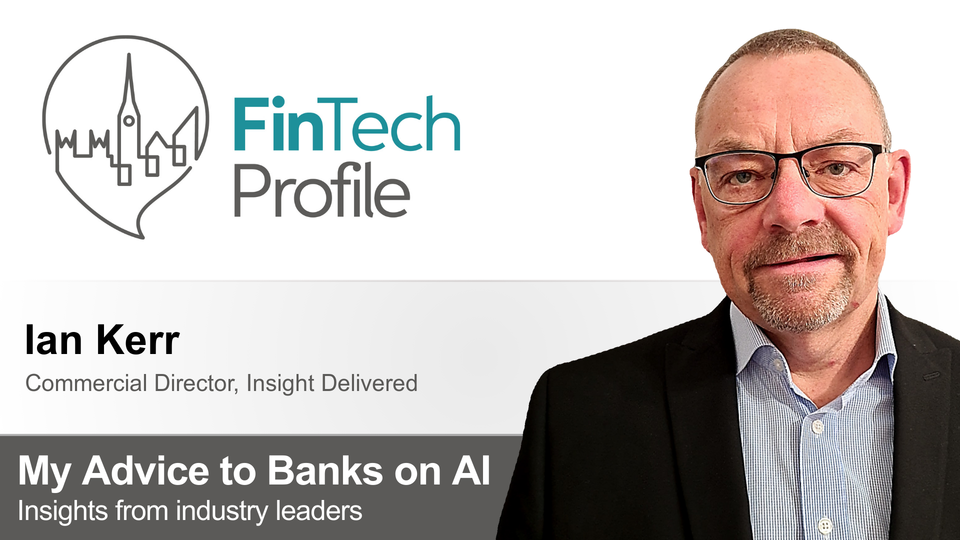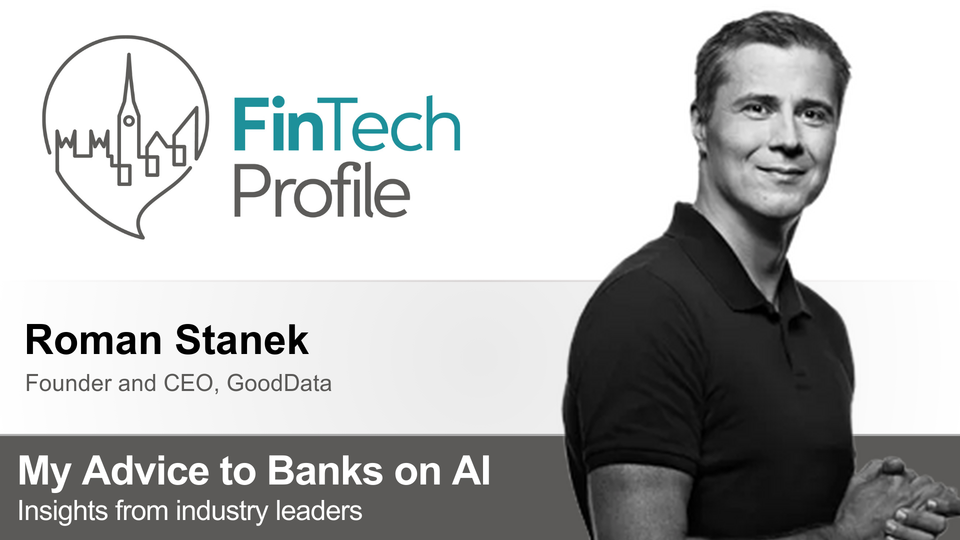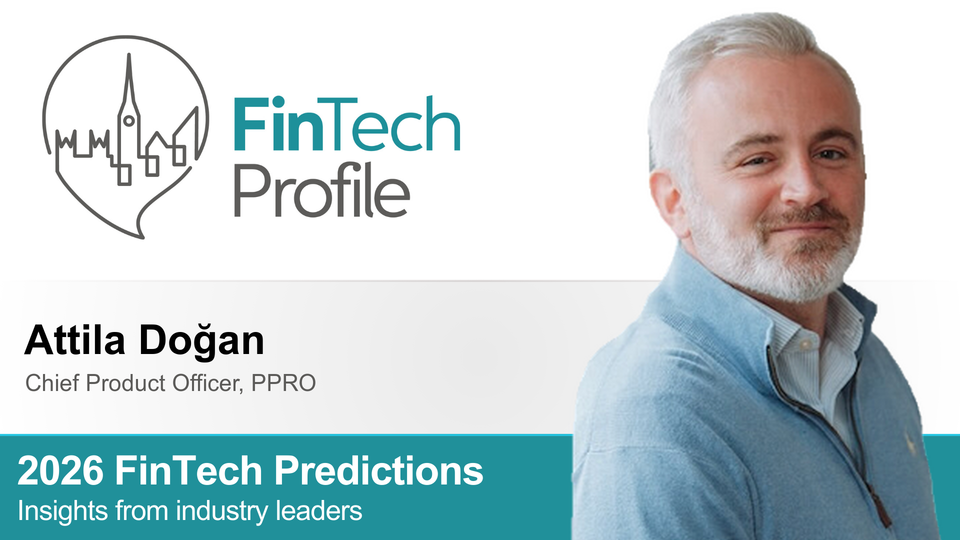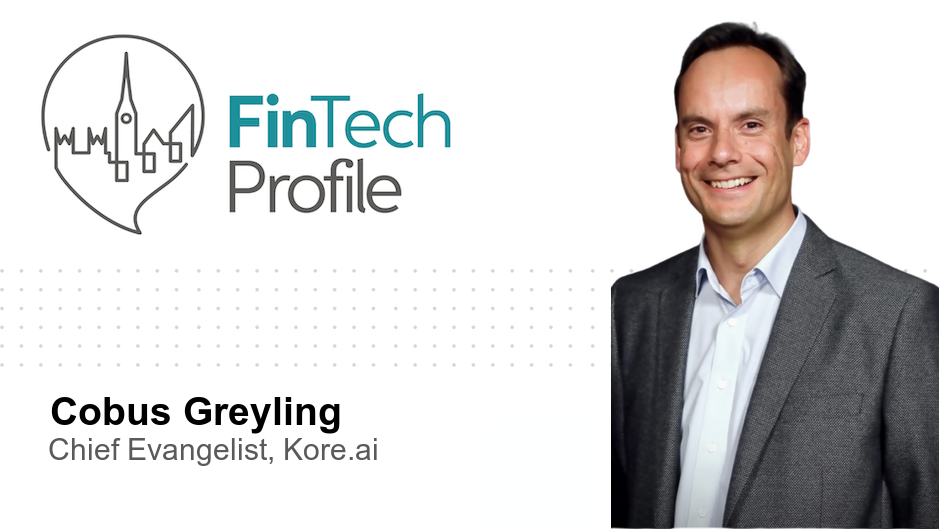Lyall Cresswell, CEO and Founder, TEG & Trustd
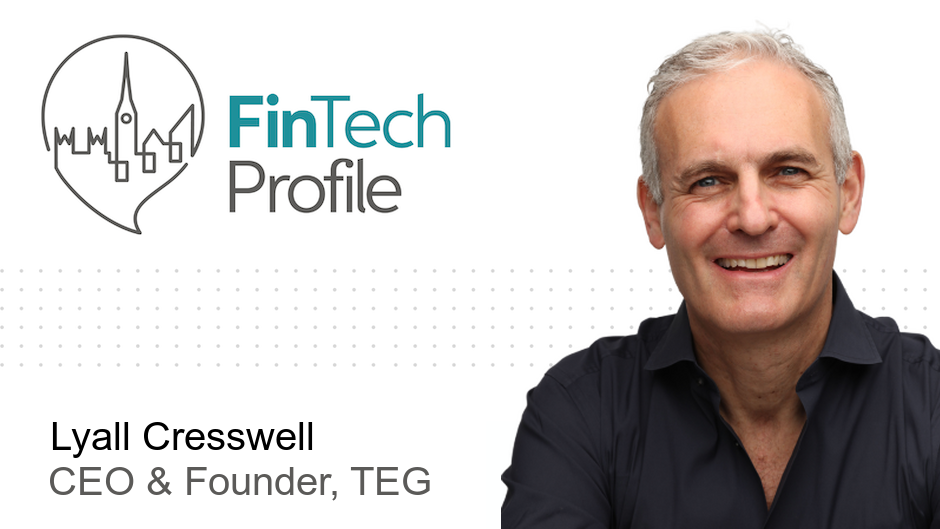
Today we're meeting Lyall Cresswell, CEO and Founder at TEG & Trustd. They specialise in fintech-enabled logistics platforms simplifying transport sourcing, operations, and payments along with digital identity verification.
Over to you Lyall - my questions are in bold:
Who are you and what's your background?
I'm the founder and CEO of two tech businesses: a freight marketplace called TEG, which I started 25 years ago, and more recently Trustd - a reg-tech platform, Trustd. My entrepreneurial journey began before either of these ventures in my mid-twenties when I founded a specialist freight forwarding company that I later sold before the millennium. I've always had an entrepreneurial spirit - after studying architecture at university, I built a specialist forwarding business that handled international freight movements in the antiques and fine art world.
At the turn of the millennium there was growing interest in the potential for online B2B marketplaces to impact all industries - the Dotcom boom was in full swing! It seemed as if there wasn't going to be any legacy industry left untouched by this phenomenon. However, despite a tidal wave of investment it became pretty clear that most were failing due to lack of liquidity. However, the road freight transport industry was one exception, largely due to the fragmentation within this large and important sector. This led me to start TEG, which has evolved significantly over the years, and more recently, to establish Trustd as a complementary business focusing on compliance and digital identity verification in the logistics sector.
What is your job title and what are your general responsibilities?
As Founder and CEO of TEG, I lead our strategic vision of transforming the logistics industry through technology and finance solutions. My day-to-day responsibilities include guiding the company's innovation roadmap, ensuring that we're consistently evolving and solving problems for our customers. I am also responsible for carefully maintaining the culture of our business - we are very inclusive and it's hugely important to us that we are empathetic with our members and do the right thing at all times.
I oversee our focus on three core areas - carrier sourcing, execution, and finance - and ensure we maintain our commitment to authenticity, honesty, and transparency in everything we do. I also lead our investment in emerging technologies such as AI to keep TEG at the forefront of logistics innovation.
Can you give us an overview of your business?
TEG is a leading fintech-enabled platform serving transport and logistics. We simplify transport sourcing, optimise operations, and accelerate payments – all in one place.
Our platform combines a thriving marketplace of 9,000 transport and logistics businesses with enterprise-grade solutions. These handle everything from carrier sourcing and compliance to real-time data insights and payments.
What sets us apart is our comprehensive ecosystem of solutions addressing logistics challenges, including TEG Carrier Compliance, TEG Carrier Sourcing, TEG Transport Execution, and TEG Freight Audit. Our revolutionary 'SmartPay' system, launched in 2024, makes life easier for logistics providers by simplifying invoice reconciliation, approval, and payments – saving them time and resources.
We've evolved from a freight exchange into a fully-featured fintech-enabled super platform. With the integration of settlement and finance capabilities, our vision is to be the only end-to-end platform helping logistics providers deliver their customers' most ambitious supply chain goals.
Tell us how you are funded?
Unlike many tech companies today that seem to focus on continuous fund-raising as a measure of success, we took a different approach. TEG has been bootstrapped from the beginning, building a viable subscription business model from day one.
After an initial test period of just four months, businesses were willing to pay a monthly subscription fee because they saw immediate value in what we offered. We've grown organically over the past 25 years by consistently reinvesting in the platform and innovation – we spend about 30% of our revenue on product development each year.
There's growing recognition of the value of bootstrapped businesses like ours, returning to the way businesses used to be built – focusing on sustainable growth rather than the fetishisation of fundraising rounds.
What's the origin story? Why did you start the company? To solve what problems?
The logistics industry faced (and still faces) significant inefficiencies – underutilised and siloed transport capacity, manual processes for finding loads and carriers, payment delays, and compliance challenges. We set out to address these by creating a digital platform that could connect carriers with available capacity to trade operators needing transport services.
We took a pragmatic approach – launching with a minimal viable product in just four months rather than spending years building a complex solution. This allowed us to start solving real problems immediately and evolve based on actual user feedback.
Over the years, as we've identified new pain points in the logistics ecosystem, we've continued expanding our solutions. The most recent paradigm shift came when we integrated settlement and finance capabilities – these were the missing pieces that enabled us to offer a truly end-to-end solution.
Who are your target customers? What's your revenue model?
We service the whole community of freight transport operators - the industry is hugely fragmented. Amongst the larger names active on our platform you'll find thousands of smaller and medium-sized enterprises using our services on a daily basis. We love growth stories and have seen many of those over the years - operators who have incorporated the platform into their modus operandi and successfully scaled their businesses.
Our revenue model is a mix of SaaS and transaction pricing. From the beginning, we focused on delivering immediate value that customers would pay for. This model has allowed us to build a sustainable business while continuously reinvesting in innovation.
If you had a magic wand, what one thing would you change in the banking and/or FinTech sector?
I'm truly excited to see digital identities become widely adopted within the UK - our Trustd platform recently became accredited to the Government's DIATF scheme as a registered Identity Provider. Amongst many benefits this will lead to much quicker and friction-free KYC processes for financial institutions. We hope that the FCA will take this opportunity to modernise their approach to document inspection and retention so that financial institutions can rely on the information that is held by consumers and businesses in their digital wallets. Financial institutions really shouldn't have to hold this information for the long term if it can be securely audited when required.
What is your message for the larger players in the Financial Services marketplace?
Modernise faster! I know that you have a huge task dealing with legacy systems and processes but the neo-banks are starting to make significant inroads into your business model. Some of the functionality that you can access now through apps is simply stunning.
Where do you get your Financial Services/FinTech industry news from?
LinkedIn is probably my go-to source, especially with everything that's going on in the world of payments. I also enjoy the London-based conferences.
Can you list 3 people you rate from the FinTech and/or Financial Services sector that we should be following on LinkedIn, and why?
- Jamie Smith is a thought leader in the world of digital wallets and personal AI - this is a cutting edge area which is going to impact everyone in the near future.
- David Birch was the author of 'Identity is the new money' some ten years ago, but still a very relevant read even today.
- Jamie Dimon, JP Morgan. Amazing longevity.
What's the best new FinTech product or service you've seen recently?
A shameless plug here for our own 'SmartPay' solution - it turns hours of manual effort involved in invoice reconciliation, vendor management and bulk payment into minutes. It's good to see years of design and build for such a key product being used hundreds of times each day!
Finally, let's talk predictions. What trends do you think are going to define the next few years in the FinTech sector?
First off - embedded finance. The ability to provide working finance at the point of delivery within a platform workflow is immense, especially in B2B.
Secondly, personal AI - I predict that it won't take long for us to gain confidence in having our own AI to research, plan and then ultimately pay for purchases. We've been clicking buttons online for too long, especially for regular and repeat purchases - it may sound a little futuristic just now but the AI will understand our preferences to surprise and delight us.
Fintech is a massive area but one of the other innovations that I'm following closely is the development of stablecoin, especially since the Stripe acquisition of Bridge earlier this year. It will be fascinating to see how the regulatory bodies adapt to this technology, and the efficiency gains that it promises.
Thank you very much, Lyall!
Read more about Lyall on LinkedIn and find out more about TEG & Trustd at teg.tech and trustd.net.

